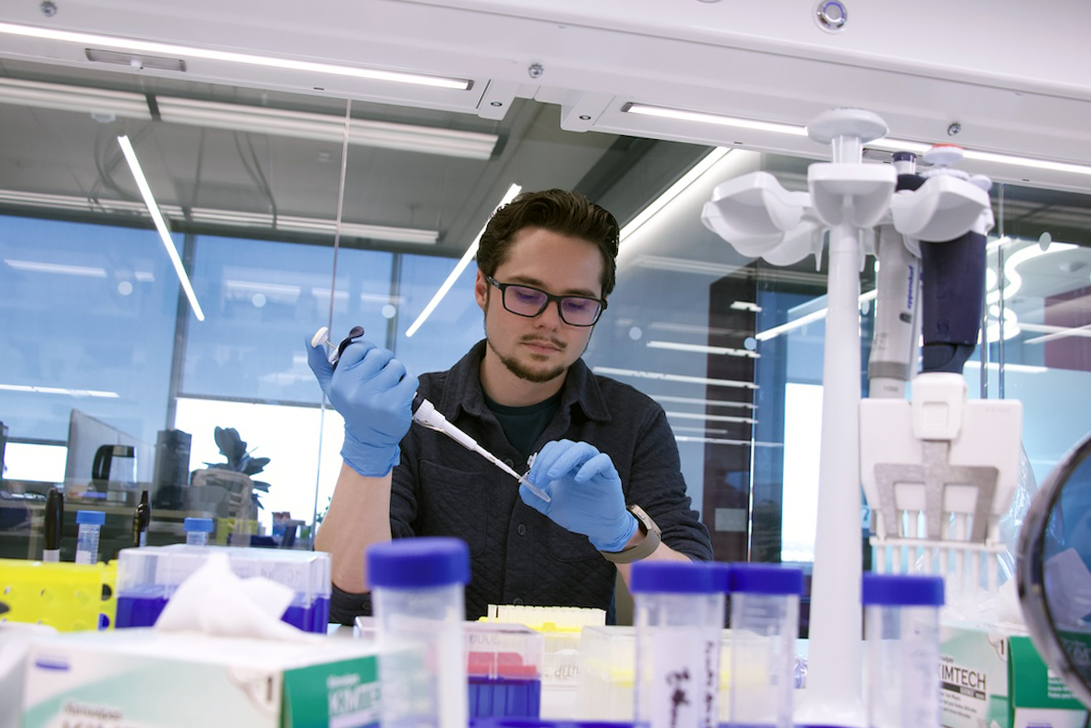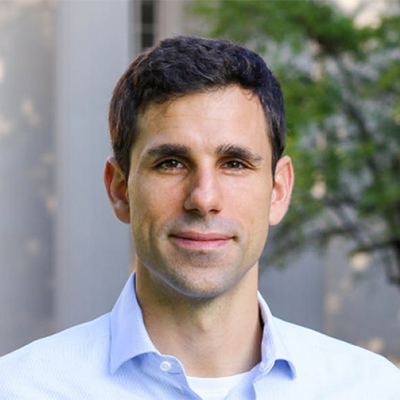
Biotechnology & Pharmaceuticals
This field focuses on the application of biological systems and processes to develop new drugs, therapies, and diagnostic tools. It includes drug delivery systems, tissue engineering, and the development of biopharmaceuticals.
Chemical and biomolecular engineers contribute to this field by designing and optimizing processes for the production of pharmaceuticals, developing new biomaterials, and advancing techniques for drug delivery and diagnostic applications.
Related CBE Courses
| Course | Title | Semester |
| CBE 5080 | Probability and Statistics | Summer |
| CBE 5170 | Principles of Genome Engineering | Spring |
| CBE 5270 | Advancements and Applications in Genome Editing and Engineering | Fall |
| CBE 5400 | Principles of Molecular and Cellular Bioengineering | Fall or Spring |
| CBE 5540 | Engineering Biotechnology | Spring |
| CBE 5550 | Nanoscale Systems Biology | Fall |
| CBE 5570 | Stem Cells, Proteomics and Drug Delivery – Soft Matter Fundamentals | Spring |
| CBE 5620 | Drug Discovery and Development | Fall |
| CBE 5640 | Drug Delivery Systems: Targeted Therapeutics and Translational Nanomedicine | Spring |
| CBE 5800 | Masters Biotechnology Lab | Fall or Spring |
| CBE 5801 | Laboratory in Biotechnology and Biochemical Engineering | Spring |
Related Faculty (Primary)
Related Faculty (Secondary)
Internship Spotlight
Syensqo, Research Process Engineering Intern

Name: Trisha Biswas
Chemical and Biomolecular Engineering
Class of 2026
Hometown: New Delhi, India
Internship Company: Syensqo
Job Title: Research Process Engineering Intern
How did you find your internship?
Career Fair organized by the University of Pennsylvania
Tell us about your internship!
This summer, I interned at Syensqo within the Technology Center, where I focused on analyzing Nanofiltration data to optimize salt removal from product formulations while preserving the integrity of active ingredients. Additionally, I contributed to developing Standard Operating Procedures for critical lab and pilot-scale equipment, helping to streamline operations and ensure process consistency. These projects deepened my understanding of mass and fluid transfer operations as well as solids characterization. Beyond the technical scope, the internship offered valuable exposure to cross-functional collaboration, allowing me to gain a broader perspective on how various departments integrate their efforts in product development and manufacturing. Overall, this experience has strengthened my technical skills, problem-solving abilities, and understanding of industrial and research processes, while also enhancing my interdisciplinary collaboration and professional communication skills in a real-world setting.
How your Master’s in CBE has helped prepare you?:
The Chemical and Biomolecular Engineering Master’s program at UPenn has been deeply impactful, refining both technical expertise and professional perspective. Courses such as Transport Processes, Thermodynamics, and Reaction Kinetics have provided a robust foundation, enabling analysis and troubleshooting of complex process operations. The knowledge gained in these classes directly enhances the understanding of the challenges and innovations encountered at the Syensqo research and innovation center, deepening the appreciation for the real-world application of core engineering principles.
Other Electives
Other Electives
| Course | Title | Semester |
| CBE 5550 | Nanoscale Systems Biology | Fall |
| BIOL 5062 | Biological Foundations for Bioengineering and Biotechnology: Cellular and Molecular Biology | Fall |
| CAMB 6090 | Vaccines and Immune | Fall |
| CHEM 7470 | Bioanalytical Chemistry | Spring |
| ENGR 5500 | Modern Biotechnology for Engineers | Fall |
| IMUN 6090 | Vaccine and Immune Therapeutics | Fall |
| MSE 5250 | Nanoscale Science and Engineering | Fall |
| REG 6120 | Introduction to Drug Development | Fall |










